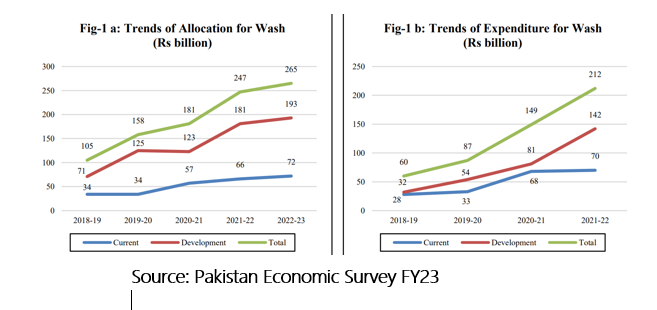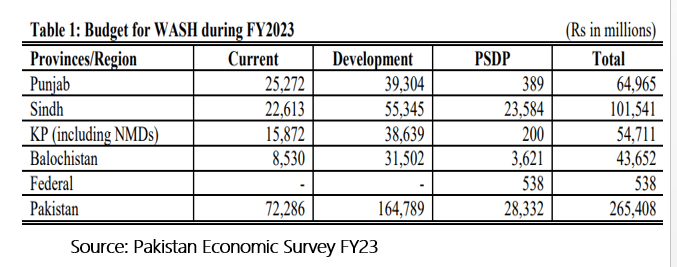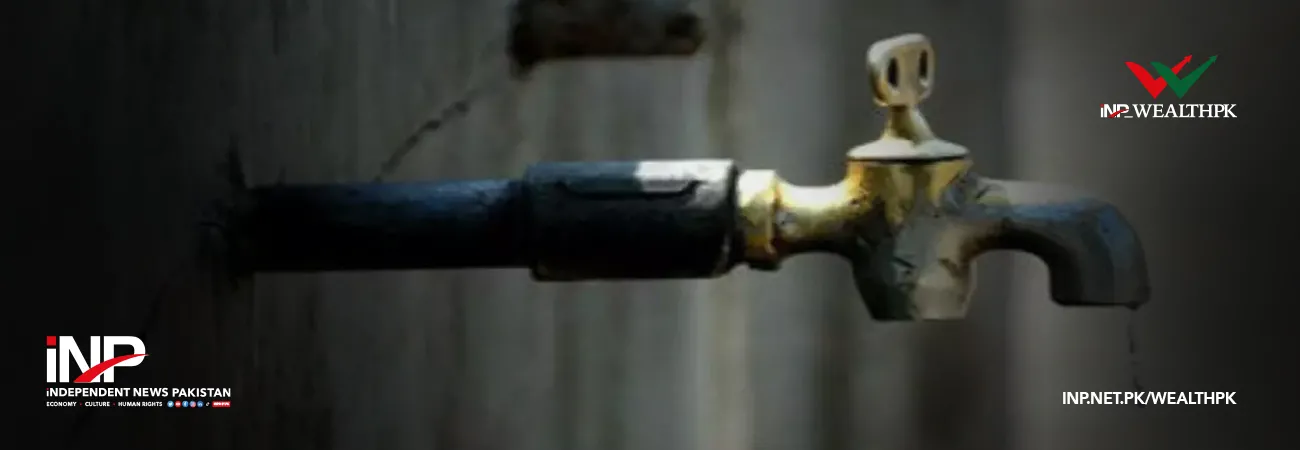INP-WealthPk
Amir Khan
Every year, 53,000 Pakistani children die of diarrhoea before celebrating their fifth birthday due to the poor quality of water and sanitation. This crisis leaves a devastating impact on children's health and education, and it is also a major obstacle to the country's socioeconomic sustainability and growth, Ms. Sumaira Muneeb, Deputy Secretary at the Ministry of Climate Change and Environmental Coordination, told WealthPK. She underscored the critical importance of Pakistan's water, sanitation, and hygiene sector.
According to a World Bank report, just 62 percent of the population has access to properly managed drinking water and only 39 percent benefit from adequately managed sanitation services. This distressing deficiency in access contributes to the prevalence of severe diseases like cholera, typhoid, and recurring episodes of diarrhoea. Ms. Muneeb clarified that nearly 70 percent of households in Pakistan consumed water laden with harmful microorganisms.
This issue escalates as urbanization accelerates and environmental dynamics shift. With the burgeoning population, the demand for safe water intensifies, but the supply often lags, leading to a dearth of clean drinking water for everyone. Despite significant progress, a global crisis persists, as the United Nations reports that a staggering 663 million people worldwide lack access to safe drinking water. Clean water, sanitation, and hygiene are essential for healthier lives, particularly among vulnerable children. Highlighting the challenges, Ms. Muneeb explained how rapid urban expansion strains water resources in Pakistan. As urban populations grow, so does the need for water, often surpassing supply capacities.
This circumstance results in water shortages, impairing the ability to provide safe drinking water to all. She also highlighted the worsening impact of shifting environmental patterns. Climate change brings about more extreme weather events, including floods and droughts, which contaminate water sources with detrimental pollutants.She added that the government's allocation of Rs265 billion in the 2023 budget to address the WASH crisis

was a "colossal 152 percent increase from the 2019 budget allocation." She added that the funding will be distributed to both provincial and federal administrations. Sindh will receive the largest share of 38.3 percent, followed by Punjab with 24.5 percent, Khyber Pakhtunkhwa with 20.6 percent, and Balochistan with 16.4 percent.

Analysing budget trends, Ms. Muneeb pointed out a consistent rise in WASH funding since 2018. In Fiscal Year 2023, an exceptional 152 percent increase was recorded compared to 2019. Despite this positive stride, effective utilization of these funds remains a pressing concern. The progress is clear, as the World Banka reports that the percentage of people with access to safely managed drinking water increased from 58 percent in 2015 to 62 percent in 2020. However, there is still a long way to go to achieve universal access to safe water.
Credit: INP-WealthPk













